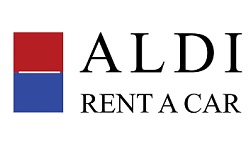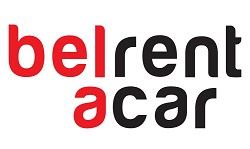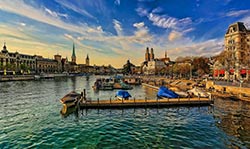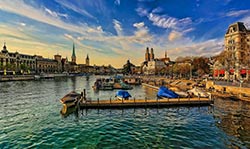
IZVEŠTAJ SVETSKE BANKE – DOING BUSINESS 2017. - POSLOVNO OKRUŽENJE SRBIJE SVE BOLJE
IZVEŠTAJ SVETSKE BANKE – DOING BUSINESS 2017.
POSLOVNO OKRUŽENJE SRBIJE SVE BOLJE
U izveštaju za 2017, Srbija je napredovala za 12 pozicija, sa 59. na 47. mesto.
Za investitore u svetu Doing Business, izveštaj Svetske banke, je podatak koliko je u određenoj zemlji jednostavno i pametno započeti biznis, i da li je i koliko rizično ili ne.
Od 2008. godine, prve za koju postoji plasman za Srbiju, pa sve do 2014, Srbija je na ovoj listi, jedne godine napredovala, sledeće nazadovala, sve u rasponu između 86. i 93. mesta, od oko 190 analiziranih ekonomija. To je bio plasman u sredini globalne liste, ali ta sredina nije zlatna, već je bila pokazatelj da Srbija u toj oblasti stagnira. U ovom momentu, tri godine za redom: 2015, 2016. i 2017. beleži se kontinuirani rast. Taj kumulativni napredak iznosi čak 46 pozicija – sa 93. mesta u izveštaju za 2014, na 47. mesto u poslednjem izveštaju.
Naime, Doing Business izveštaji ocenjuju uslove poslovanja za 190 ekonomija sveta i daju smernice za njihovo poboljšanje. Ovaj izveštaj ne meri sve uslove poslovanja u nekoj ekonomiji (veličinu tržišta, kvalitet obrazovanja, platežnu sposobnost), već pre svega one koji u najvećoj meri zavise od državnih politika (kvalitet regulative) i načina na koji se te politike sprovode (efikasnost administracije). Uslovi poslovanja koje ocenjuje Doing Business odlučujuće utiču na ekonomsku razvijenost neke države.
„Napredovanje na Doing Business listi pokazuje da regulativa u određenoj ekonomiji postaje kvalitetnija što se privrednih subjekata tiče i da se efikasnije primenjuje. To pogoduje rastu domaće privrede. Napredak na Doing Business listi ohrabruje strane investitore i tako povoljno deluje na obim stranih ulaganja. Prema rangu u pogledu uslova poslovanja, Srbija danas spada u grupu zemalja koje imaju tri puta veći društveni proizvod po glavi stanovnika nego što je Srbija imala u 2014. Održiva konkurentnost na polju uslova za poslovanje će uticati da se Srbija prema društvenom proizvodu po glavi stanovnika približi razvijenim državama“, ocena je NALED-a, Britanske ambasade u Srbiji i USAID nakon izveštaja za 2017.
U izveštaju za 2017, Srbija je napredovala za 12 pozicija, sa 59. na 47. mesto. Najviši napredak je zabeležen u oblasti građevinskih dozvola, sa 139. na 36. mesto. Zahvaljujući ovom napretku, i naprecima u oblastima osnivanja privrednih subjekata i upisa prava svojine, Srbija je jedna od deset top globalnih ekonomija prema napretku koji je ostvarila, smatraju u NALED-u.
Posmatrano u regionalnom okviru, Srbija je u izveštaju za 2014. bila najlošije plasirana (93. mesto), posle Bosne i Hercegovine (131). Danas se Srbija (47) probila ispred Crne Gore (51) i Albanije (58), i dalje je ispred BiH (81), a zaostaje za Hrvatskom (43), Slovenijom (32) i Makedonijom (10. mesto).
Međutim, s druge strane, Srbija u regionu ipak nije najviše napredovala. Albanija pokazuje skok za 32 pozicije. Hrvatska je nazadovala za četiri, Crna Gora za tri i Bosna i Hercegovina za dve pozicije.
Srbija najbolji rang ima u pogledu prekogranične trgovine (23. mesto), izdavanja građevinskih dozvola (36) i dobijanja kredita (44), dok najviše zaostaje u pogledu dobijanja priključka za električnu energiju (92. mesto), plaćanja poreza (78), zaštite manjinskih akcionara (70).
Plasman po kategorijama (indikatorima) nije bitan za ukupan plasman, ističe NALED. „Bitno je koliko zaostajemo za državom koja je lider u toj kategoriji. To zaostajanje za liderom u nekoj kategoriji Doing Business izveštaj naziva Distance to Frontier (DTF). Ukupan plasman svake države se dobija na osnovu proseka zaostajanja u svih deset kategorija. Na primer, u pogledu Osnivanja privrednog subjekta, Srbija je 47. na globalnoj rang listi, ali je naše zaostajanje za najboljom međunarodnom praksom u ovoj oblasti minimalno – manje od 8,5 poena. S druge strane, u pogledu Rešavanja stečaja smo, takođe, na 47. mestu, ali nam je zaostajanje za najboljom međunarodnom praksom u ovoj oblasti ogromno – više od 40 poena. Distance to Frontier nam govori u kojim oblastima naši privrednici imaju lošiji tretman u odnosu na one koji posluju u zemljama koje primenjuju najbolju praksu. Najboljoj praksi smo se najviše približili u oblastima Preko-granične trgovine (na 3,5 poena zaostatka), Osnivanja privrednog subjekta (8,5) i Dobijanje građevinske dozvole (24 poena). Najviše zaostajemo, pa je to i prostor za najviše unapređenja uslova za poslovanje i popravljanje naše ukupne pozicije na Doing Business listi, u oblastima Zaštite manjinskih akcionara (43,5 poena zaostatka), Rešavanje stečaja (40,5) i Izvršenja ugovora (38,5 poena). Sve kategorije u kojima je DTF ispod ukupnog rezultata za Srbiju (72,29), vuku naš rezultat na dole“, ističe su oceni NALED-a.
Ujedno ostaje problem i što je Srbija slabije napredovala mereno DTF poenima (olakšano poslovanje investitorima) za 2,59 poena, što je lošiji rezultat u odnosu na predhodnu godinu (3,16).
RANG
INDIKATOR 2010 2011 2012 2013 2014 2015 2016 2017
Započinjanje biznisa 73 83 92 42 45 66 65 47
Dobijanje građevinske dozvole 174 176 175 179 182 186 139 36
Dobijanje električne energije / / 79 76 85 84 63 92
Registracija vlasništva 105 100 39 41 44 72 73 56
Dobijanje kredita 4 15 24 40 42 52 59 44
Zaštita investitora 73 74 79 82 80 32 81 70
Plaćanje poreza 137 138 143 149 161 165 143 78
Trgovina preko granica 69 74 79 94 98 96 23 23
Izvršavanje ugovora 97 94 104 103 116 96 73 61
Rešavanje insolventnosti 102 86 113 103 103 48 50 47
Izvor: Doing Business 2010. – 2017.
WORLD BANK’S REPORT – DOING BUSINESS 2017
BUSINESS SURROUNDING OF SERBIA GETS BETTER
In the report for the year of 2017, Serbia has made a progress for 12 positions, from 59th place to the 47th place.
For the investors in the world of Doing Business, the report of the World Bank means information telling how clever and simple is to start business in a certain country, as well as if and how much it is risky.
Starting from 2008, the first year for Serbia, up to the year of 2014, Serbia has been on this list; one year Serbia made a progress, another it made a regress, all between 86th and 93rd place, of 190 analyzed economies in total. It was a placement in the middle of the global list, but that middle is not made of gold; it was an indicator that Serbia stagnates in that area. In this moment, three years in a row 2015, 2016 and 2017 a continued growth has been being registered. That cumulative progress amounts almost 46 positions – from 93rd place in the report for 2014, to the 47th place in the last report.
Namely, Doing Business reports marks the conditions of business for 190 economies in the world and give directions for their improvement. This report doesn’t measure all conditions of the business in some economy (the market size, quality of education, financial solvency) but those ones who, before all, depend on the state politics (quality of regulative) and the way those politics are applied (efficiency of administration). Business conditions marked by Doing Business decisively influences economic development of some state.
“Progress on the Doing Business list shows that a regulative in some certain economy becomes of more quality when we talk about the business; also, it is applied in a more effective way. That contributes to the growth of a domestic economy. The progress on Doing Business list encourages the foreign investors and positively influences the scope of foreign investments. According to the rang relating to the business conditions, today Serbia belongs to the group of countries having social product per capita three times bigger than it had in 2014. Sustainable competitiveness in the area of business conditions will influence Serbia in the way it will get closer to the developed countries with its social product per capita” which is a mark of NALED (National Alliance for Local Economic Development), British Embassy in Serbia and USAID, upon having a report for the year of 2017.
In the report for 2017, Serbia made a progress for 12 positions, from 59th to 47th position. The highest progress was recorded in the area of construction permissions, from 139th to 36th place. Due to this progress and all progresses in the area of the business entities establishment, as well as the area of property rights entry, Serbia is one of 10 top global economies according to the progress it has achieved, it was stated in NALED.
Observed in the regional framework, in the report for 2014 Serbia was the worst placed country (93rd place) after Bosnia and Herzegovina (131st place). Today, Serbia (41st ) is in front of Montenegro (51st ) and Albania (58th ), as well as of Bosnia and Herzegovina (81st ), but Serbia lags behind Croatia (43rd ), Slovenia (32nd ) and Macedonia (10th ).
However, Serbia hasn’t made the biggest progress in this region. Albania has reached a big leap for 32 positions. Croatia has regressed for 4, Montenegro for 3 and Bosnia and Herzegovina for 2 positions.
The best rang Serbia has in the area of the cross-border trade (23rd place), construction permissions issuing (36th) and getting the loans (44th) while the worst rang it shows in the area of getting connections for electricity (92nd place), paying taxes (78th ), protection of minority shareholders (70th).
The placement per categories (indicators) is not important for a total placement, states NALED. “ It is important how much we lag behind the state which is a leader in that category. That lagging behind the leader in some category Doing Business report names as a Distance to Frontier (DTF). A total placement of each country can be obtained based on the average of lagging in all 10 categories. For example, related to Establishment of business entity Serbia is placed on the 47th place of the global list, but our lagging behind the best international practice in this area is minimal – less than 8,5 points. On another hand, when talking about solving bankruptcy, we are also on the 47th place, but our lagging behind the best international practice in this area is huge – more than 40 points. Distance to Frontier tells us in which areas our businessmen have worse treatment in relation to those ones doing business in the countries applying the best practice. We approached to the best practice the most in the area of cross-border trade (on 3,5 points of lagging), establishment of business entity (8,5) and obtaining the construction permission (24 points). We are lagging the most, so it is the space for the biggest improvement in conditions for doing business and our total position upgrading in Doing Business list, in the area of protection of minority of shareholders (43,5 points of lagging), solving the bankruptcy (40,5) and execution of the contracts (38,5 points). All categories in which DTF is below the total result for Serbia (72,29), pull our result down”, states NALED in its estimation.
In the same time, it remains that Serbia made a poor progress, measured with DTF points (business facilitated to the investors), for 2,59 points, which is worse result in relation to the previous year (3,16).
RANG
INDICATOR 2010 2011 2012 2013 2014 2015 2016 2017
Starting the business 73 83 92 42 45 66 65 47
Obtaining the construction permission 174 176 175 179 182 186 139 36
Getting the power / / 79 76 85 84 63 92
Property registration 105 100 39 41 44 72 73 56
Getting the loan 4 15 24 40 42 52 59 44
Protection of investor 73 74 79 82 80 32 81 70
Paying the tax 137 138 143 149 161 165 143 78
Trade over the borders 69 74 79 94 98 96 23 23
Execution of the contracts 97 94 104 103 116 96 73 61
Insolvency solving 102 86 113 103 103 48 50 47
Source: Doing Business 2010. – 2017.












